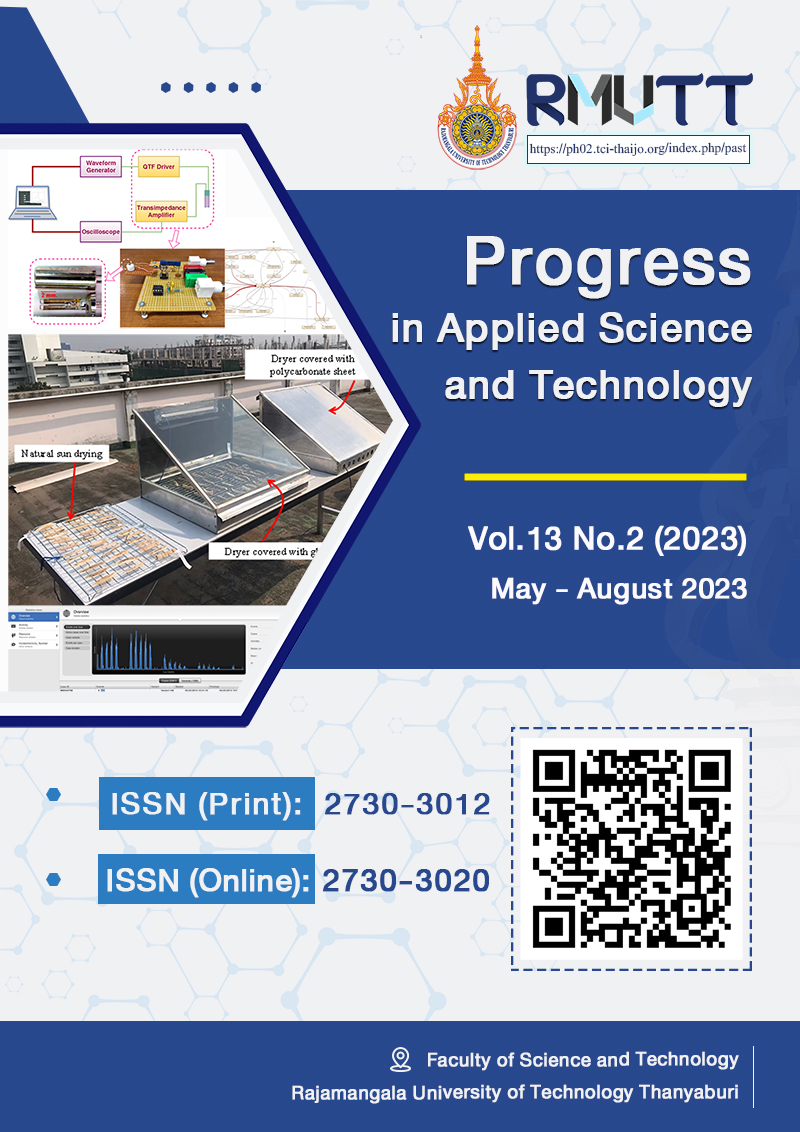Developing Data Analytics Skills in 21st Century Based on Open Data
Main Article Content
Abstract
Teaching data analysis with open data allows learners to practice the 21st century skills of data filtering and preparation, systematic analysis, creating output and communication, and problem-solving. The purposes of this research were to 1) apply open data for teaching and learning in data analysis course 2) compare achievements after learning process, and 3) study the satisfaction of learners received from open data exercises. Data was collected through interviews and classroom trails for open data lessons. The target group used in group discussion were students who registered for data analysis in academic year 2021 in 2 groups. Each group has 5 students with a total of 10 students. Researchers conducted in-dept interviews with 2 experts and developed class materials for teaching and learning. Quantitative data were collected from pre-test and post-test scores of 33 learners enrolled in the academic year 2022. The findings reveal an opportunity to develop and an open data application to be used in teaching and learning. The comparison of learning achievement by paired-sample t test showed that the mean score after learning was higher than the mean score before learning at a statistically significant level of 0.01. The detailed comparison results revealed that the average scores the average score after learning was higher than the average score before learning at the statistical significance level of 0.05 in the 21st century skills of 1) data accessing, filtering and preparation 2) creativity and presentations, and 3) problem solving. On the contrary, there was no difference in analytical thinking skills. The results showed that learners were satisfied with open data application used in teaching and learning at a high level (x̅ = 4.21). The results of this study will be useful to apply open data in data analysis courses, which will develop 21st century skills of the learners.
Article Details

This work is licensed under a Creative Commons Attribution-NonCommercial-NoDerivatives 4.0 International License.
References
Ruijer E, Meijer A. Open government data as an innovation process: Lessons from a living lab experiment. Public Performance & Management Review. 2020;43(3):613-35.
Piotrowski SJ. The “Open Government Reform” movement: The case of the open government partnership and US transparency policies. The American Review of Public Administration. 2017;47(2):155-71.
Gebre EH, Morales E. How “accessible” is open data? Analysis of context-related information and users’ comments in open datasets. Information and learning sciences. 2020;121(1/2):19-36.
Utamachant P, Anutariya C, editors. An analysis of high-value datasets: a case study of Thailand’s open government data. 2018 15th international joint conference on computer science and software engineering (JCSSE); 2018.
Lie V, Kauutuk DA, Palilingan R, Tambingon HN. Technology-Based Learning Management at State Vocational Schools In Minahasa Selatan. Eduvest-Journal of Universal Studies. 2022;2(11): 2316-29.
Allen WC. Overview and evolution of the ADDIE training system. Advances in developing human resources. 2006;8(4): 430-41.
Welty G. The'design'phase of the ADDIE model. Journal of GXP Compliance. 2007; 11(4):40-53.
Lo LY-H, Ming Y, Qu H, editors. Learning vis tools: Teaching data visualization tutorials. 2019 IEEE Visualization Conference (VIS); 2019.
Asamoah D. Improving Data Visualization Skills: A Curriculum Design. Int. j. educ. dev. using inf. commun. technol. 2022; 18(1):213-35.
Nestorov S, Jukić N, Rossi S. Design and Implementation of a Data Visualization Course with a Real-World Project Component in an Undergraduate Information Systems Curriculum. J. Inf. Syst. Educ. 2019;30(3):202-211.
Saddiqa M, Rasmussen L, Magnussen R, Larsen B, Pedersen JM. Bringing open data into Danish schools and its potential impact on school pupils. Proceedings of the 15th international symposium on open collaboration. 2019;1-10






